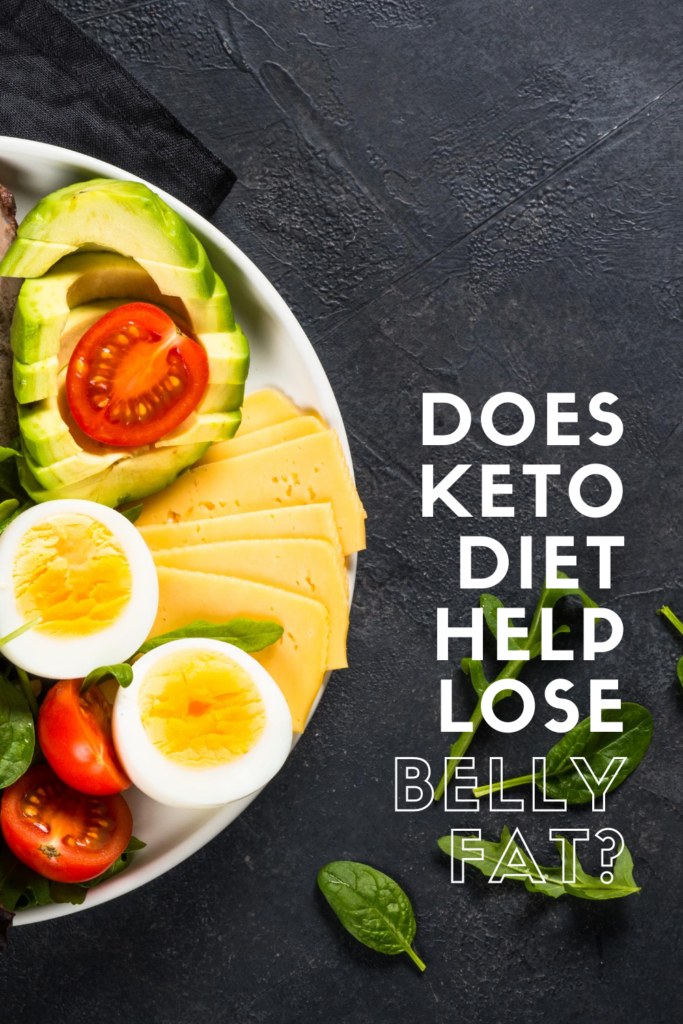The ketogenic diet has widely been used to help those looking to lose weight.
However, skeptics are asking questions on the credibility of the diet.
It should be known that the keto diet has been scientifically proven to be effective in facilitating weight loss.
Does The Keto Diet Help You Lose Belly Fat?
Yes, the keto diet along with lifestyle changes is a sure way to lose belly fat.
The Keto diet works on the principle that the body requires energy to function. The main source of energy is the food we eat, mainly carbohydrates.
The keto diet tries to deprive the body of carbohydrates prompting it to turn to the other sources of fuel.
While the diet is very effective, questions arise regarding its long-term effects.
The fact that the diet offers unorthodox means of weight loss has been under the microscope.
Researchers believe that the diet may have some long-term effects if not used appropriately.
Understanding The Keto Diet For Belly Fat
To understand how the diet works, you need to have an understanding of how your body functions.
There are four main sources of energy for the body. The sources include
- Glucose
- Protein
- Free Fatty Acids (FFA) and
- Ketones
Glucose, which is a product of processed carbohydrates, is the main source of energy.
The body draws most of its energy from carbohydrate foods such as wheat products and other high sugar products.
However, such foods are also high calorie. Carbohydrates compound the number of calories taken per day hence increasing your body weight in the long run.
Weight loss/gain is simply the difference between calorie intake and calorie lost
Weight loss= Calorie Intake – Calorie Lost.
To reduce the number of calories you add to your system, ketogenic diet advocates for low carbohydrate intake.
That is not all, besides reducing the number of calories you take, the keto diet also helps your body burn fats.
When you deprive the body of carbohydrates, the principal source of energy, it behaves as if you are starving.
In this state, the body turns to the other sources of energy, mainly FFAs and ketones.
This state is referred to as ketosis, hence the name ketogenic diet.
The keto diet drives your body into a ketosis state where your body fats are converted into ketones to provide fuel for your daily activities.
Additional Factors Affecting Fuel Utilization
The breakdown of foods and supply of energy depends on various enzymes.
The status of the liver and the level of certain enzymes play an important role in facilitating energy use.
The body may tap to the other sources of energy, primarily free fatty acids if the glucose available is not sufficient.
The body’s overall use of fuel can be summarised as
Total energy requirements = Glucose + FFA
Assuming that the energy requirements of the body stay the same when you are on a keto diet, the decrease in the use of glucose means an increase in the use of FFA for fuel.
The continuous use of FFA for fuel reduces the need for glucose in the body.
Generally, the body has a large protein and fat store as compared to carbohydrates.
The carbohydrates stored are enough to supply a day’s worth of energy. Therefore, without carbs, your body has to turn to fats.
Fats can supply your body with energy for several weeks. Obese individuals can actually survive on fats for a whole year.
Impact Of Ketogenic Diet On The Brain
One of the biggest concerns about the keto diet is the fact that the brain is unable to use FFAs for energy.
However, this is a big misunderstanding of human physiology.
The fact is that the brain mainly runs on glucose, does not mean that it cannot run on ketones.
Research shows that the body readily uses ketones when they are available. The brain can derive up to 75% of its energy requirements from ketones.
A research done by Healthline Publication shows that the keto diet boosts mental health instead.
What Foods To Eat On A Ketogenic Diet?
It is not possible to point out specific foods for a keto diet.
The best part about a ketogenic diet is that you have the freedom to select your foods.
The most important aspect is to ensure that you balance the ratio. In a keto diet, foods are distributed in the following order:
- Carbohydrates-5% of daily intake
- Proteins- 20% of daily intake
- Fats-75%- daily intake.
It is important to ensure you stick to the routine to gain the expected results.
You should also combine the use of a ketogenic diet with physical exercise to enhance weight loss.
Enjoyed Does Keto Diet Help Lose Belly Fat?? Share it with your friends so they too can follow the Superfoodsliving journey.
Share on Pinterest
